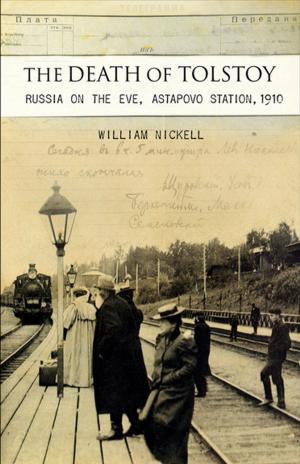Holding the Shop Together
German Industrial Relations in the Postwar Era
Nonfiction, Social & Cultural Studies, Political Science, Politics, Labour & Industrial Relations| Author: | Stephen J. Silvia | ISBN: | 9780801469657 |
| Publisher: | Cornell University Press | Publication: | November 15, 2013 |
| Imprint: | ILR Press | Language: | English |
| Author: | Stephen J. Silvia |
| ISBN: | 9780801469657 |
| Publisher: | Cornell University Press |
| Publication: | November 15, 2013 |
| Imprint: | ILR Press |
| Language: | English |
Since the onset of the Great Recession, Germany’s economy has been praised for its superior performance, which has been reminiscent of the "economic miracle" of the 1950s and 1960s. Such acclaim is surprising because Germany’s economic institutions were widely dismissed as faulty just a decade ago. In Holding the Shop Together, Stephen J. Silvia examines the oscillations of the German economy across the entire postwar period through one of its most important components—the industrial relations system.
As Silvia shows in this wide-ranging and deeply informed account, the industrial relations system is strongest where the German economy is strongest and is responsible for many of the distinctive features of postwar German capitalism. It extends into the boardrooms, workplaces and government to a degree that is unimaginable in most other countries. Trends in German industrial relations, moreover, influence developments in the broader German economy and, frequently, industrial relations practice abroad. All these aspects make the German industrial relations regime an ideal focal point for developing a deeper understanding of the German economy as a whole. Silvia begins by presenting the framework of the German industrial relations system—labor laws and the role of the state—and then analyzes its principal actors: trade unions and employers’ associations. He finds the framework sound but the actors in crisis because of membership losses. Silvia analyzes the reasons behind the losses and the innovative strategies German labor and management have developed in their efforts to reverse them. He concludes with a comprehensive picture and then considers the future of German industrial relations.
Since the onset of the Great Recession, Germany’s economy has been praised for its superior performance, which has been reminiscent of the "economic miracle" of the 1950s and 1960s. Such acclaim is surprising because Germany’s economic institutions were widely dismissed as faulty just a decade ago. In Holding the Shop Together, Stephen J. Silvia examines the oscillations of the German economy across the entire postwar period through one of its most important components—the industrial relations system.
As Silvia shows in this wide-ranging and deeply informed account, the industrial relations system is strongest where the German economy is strongest and is responsible for many of the distinctive features of postwar German capitalism. It extends into the boardrooms, workplaces and government to a degree that is unimaginable in most other countries. Trends in German industrial relations, moreover, influence developments in the broader German economy and, frequently, industrial relations practice abroad. All these aspects make the German industrial relations regime an ideal focal point for developing a deeper understanding of the German economy as a whole. Silvia begins by presenting the framework of the German industrial relations system—labor laws and the role of the state—and then analyzes its principal actors: trade unions and employers’ associations. He finds the framework sound but the actors in crisis because of membership losses. Silvia analyzes the reasons behind the losses and the innovative strategies German labor and management have developed in their efforts to reverse them. He concludes with a comprehensive picture and then considers the future of German industrial relations.















